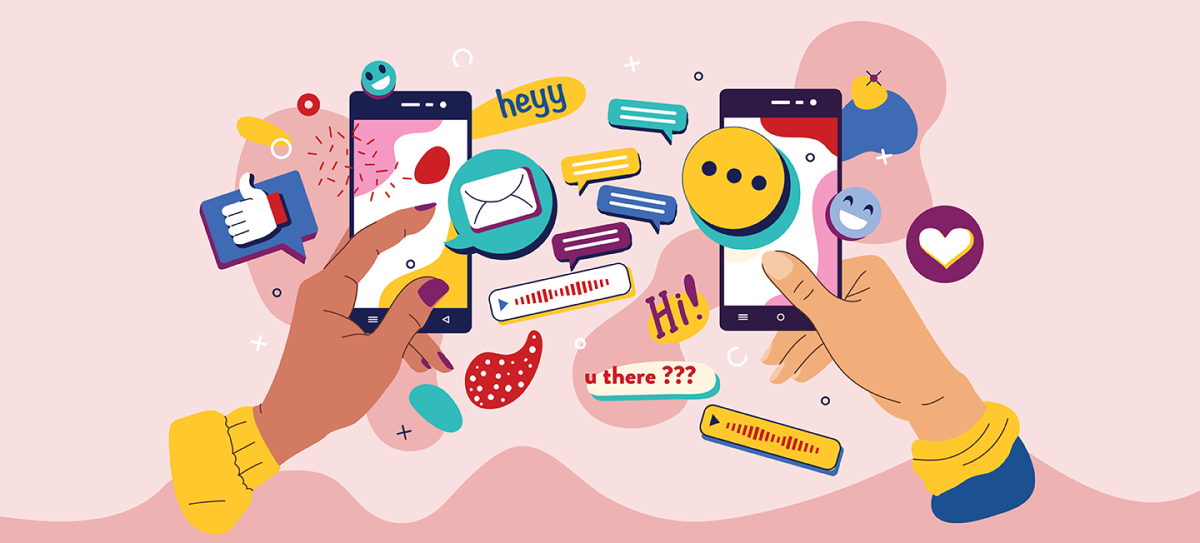Dating is hard for Gen Z, and dating apps aren’t helping

Photo via bu.edu.com.
Let’s face it: romance is dead. While you may know the odd happy couple that have somehow been together since the dawn of time, the rest of us are struggling to navigate the dating scene in our digital world. Long gone are the days of passing notes in class, and instead we have men sending “You up?” texts at 2 a.m. as our new courting ritual. Call me old-fashioned, but all I want is to be taken out on a nice date.
Like many people, I avoided using dating apps because I wanted to meet potential partners naturally. When I started my first year at UVic, this seemed reasonable, since living on campus meant I was meeting new people almost every day. But during my second year, I soon realized the rate at which I was meeting new people was beginning to slow down and the number of potential suitors in the wild was dwindling quickly.
At the start of my first year, I had a brief experience with Tinder. Tied with Bumble, Tinder was the most used dating app in the U.S. last year. After hearing my fair share of Tinder stories from friends, I was intrigued enough to try it. Tinder describes itself as “the place to be to meet your next best match”, and I was going to put it to the test.
Tinder’s unique feature is the swiping function: left to say no, right to say yes. The swiping makes Tinder feel like a game, and the reward is getting a match. After the initial dopamine rush of making a match, I quickly lost interest when the majority of people I matched with didn’t even message me, and if they did, the conversations were short and lackluster.
Tinder’s setup is great for finding interested singles in your area but rarely fosters genuine conversations. Furthermore, Tinder has garnered a reputation for being the “Netflix and chill” app, where you can find fun for the night. If you’re interested in going on a date, I recommend skipping Tinder and looking elsewhere.
My friend wisely advised me, “If you actually want to go on dates, use Hinge. Men on Tinder only want to hook up.” Unlike Tinder, Hinge describes itself as “the dating app designed to be deleted”, boasting its top-notch algorithm meant to direct you to people with similar interests.
A Hinge profile comprises images and prompts, meant to help people engage in conversations based on similar interests, personal stories, and date ideas. On Hinge, you can send someone a “like”, and if they accept it, you can match and then start a conversation.
Initially, I found Hinge very promising. After only a few days, I had engaged in more genuine conversations than I ever had on Tinder. However, very few people showed interest in taking the next step and moving our budding relationship from online to in-person. Even with my (albeit subpar) efforts to move things along, I felt an overwhelming lack of interest from my matches in taking me out on a real date.
Where did it all go wrong? Over the years, dating has become more casual. The internet played a huge role in this since social media has made it possible to connect with people 24/7. Our parents’ generation didn’t have cell phones, and could only talk to each other on a landline. The accessibility of talking to people online has ruined the novelty of getting to know someone the good old-fashioned way. While this may save us from many awkward first dates, it also has taken away a large chunk of dating culture, since people are comfortable getting to know one another over a series of texts instead of drinks.
While dating apps once provided a promising way to meet new people, over the past decade, they’ve slowly been losing downloads, and not due to a lack of interest in dating. MatchGroup, the owner of Tinder, reports that Gen Z users are seeking “a lower pressure, more authentic way to find connections.” Gen Z users have paradoxical interests of wanting to find a genuine connection while simultaneously seeking these connections on dating apps based on initial attractions.
So where do we go to find love? My best recommendation is to skip the dating apps, however tempting they may be. The data supports taking it slow, and forming friendships before jumping into relationships. Don’t be afraid to put yourself out there: love may be closer than you think.







